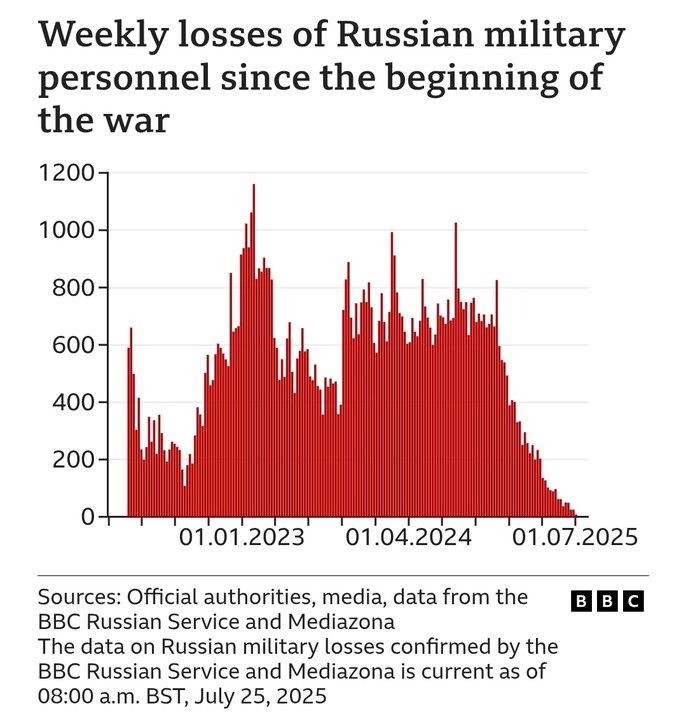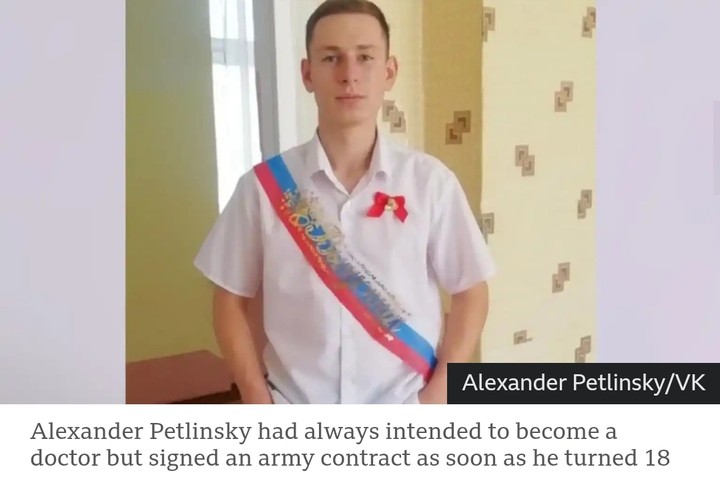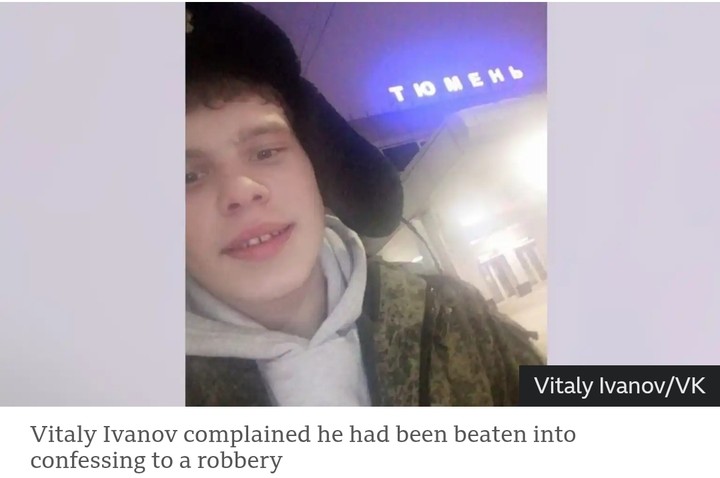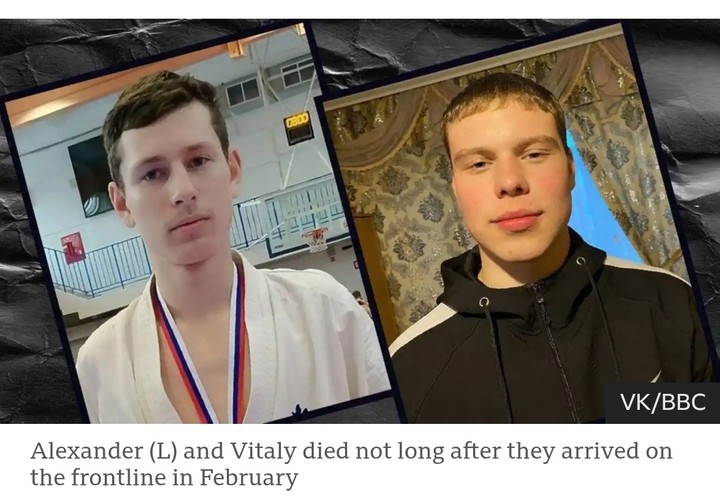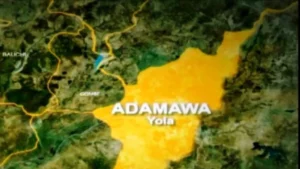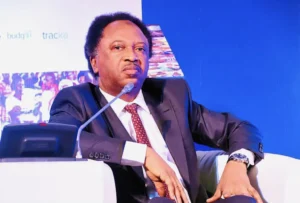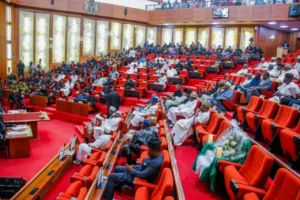Russian President Vladimir Putin has said many times that 18-year-olds drafted into the military won’t be sent to fight in Ukraine. However, a BBC investigation has found that at least 245 young Russian soldiers aged 18 have died in the war over the last two years.
The Russian government introduced new rules that let teenagers skip compulsory military service and immediately sign up as paid contract soldiers. These young men, fresh from school, can now head straight to war.
Although these teenagers make up just a part of Russia’s total war losses, the promise of cash rewards and the heavy patriotic messaging in schools have made the army appealing to many of them.
One example is Alexander Petlinsky, who joined the army just two weeks after turning 18. Only 20 days later, he was killed in Ukraine. He is one of the many soldiers who have died since Russia launched its full-scale invasion in February 2022—a war that has also killed over 13,500 Ukrainian civilians.
Alexander’s aunt, Ekaterina, said he had been accepted into a medical college in Chelyabinsk and had hoped to become a doctor. But after the war started when he was just 15, he developed a dream of fighting on the frontline.
Meanwhile, Ukraine has set the military call-up age at 25.
Russia has avoided a full national mobilisation by offering large financial rewards to men who agree to fight. These offers are especially tempting in poor regions where there are few job opportunities.
Initially, young men needed to complete three months of military training before they could become contract soldiers. But in April 2023, that rule was quietly removed. Now, any 18-year-old who finishes school can go straight into the army.
Russian schools have also played a role in preparing teenagers for war. Since the invasion, teachers have been legally required to hold classes promoting the so-called “special military operation.”
Soldiers returning from the front regularly visit schools to share their experiences. Students are taught to make trench candles and camouflage nets. Even children in nursery school are encouraged to send drawings and letters to troops at the frontline.
In September 2024, a new school subject was introduced. Called “The Basics of Safety and Homeland Defence,” the course teaches older students how to use guns and grenades—something that hasn’t been done since the Soviet era. Military recruiters now attend school career days, encouraging students to sign up after graduation.
Another teenager, Vitaly Ivanov, lived in a small Siberian village and had dropped out of college where he was training to be a mechanic. After getting into trouble with the police and being accused of robbery in November 2024, he told his mother and girlfriend that he was beaten into confessing. His family suspects the police may have forced him to sign up for the military.
Vitaly had planned to do his military service at 18 and then look for construction work in Kazan with a friend. But instead, he ended up joining the army. Before leaving, he called his mother to say he was being sent to the “North-Eastern Military District”—a way of saying he was heading to Ukraine. He and Alexander reached the frontline at about the same time in February.
Vitaly’s last message to his family was sent on 5 February, saying he was about to be sent into combat. That ended up being his only mission. A month later, the enlistment office told his mother he had died on 11 February.
The BBC’s Russian team, using public records, confirmed that 245 18-year-old contract soldiers have died in Ukraine between April 2023 and July 2025. All had signed up voluntarily under the new relaxed rules.
Since the invasion began, BBC has counted at least 2,812 Russian soldiers between the ages of 18 and 20 who have died in the war. These numbers are based only on publicly available information, so the real number is likely much higher.
By July 2025, the BBC had confirmed the names of 120,343 Russian soldiers killed in the war. Military experts believe this could be only 45–65% of the total deaths, meaning the true figure could be as high as 267,500.
When Alexander turned 18 on 31 January, he applied to take a year off college so he could join the military. Although he wanted to be a doctor, he also dreamed of fighting in Ukraine. Just a few weeks later, he was sent to the frontline and died on 9 March.
His mother Elena told the BBC that she was proud of her son as a Russian citizen, but she couldn’t bear the pain of losing him. She didn’t want to say more.
Alexander’s friend Anastasia said it’s now very painful to see young boys signing military contracts. “They’re still young and naive,” she said. “They don’t understand the seriousness of what they’re doing.”
